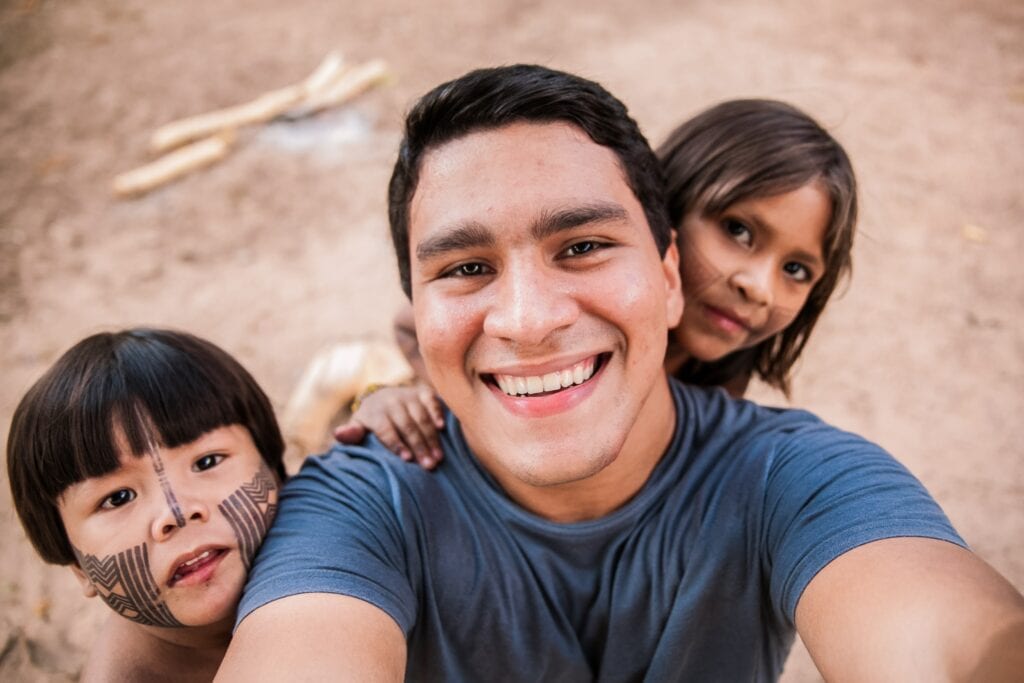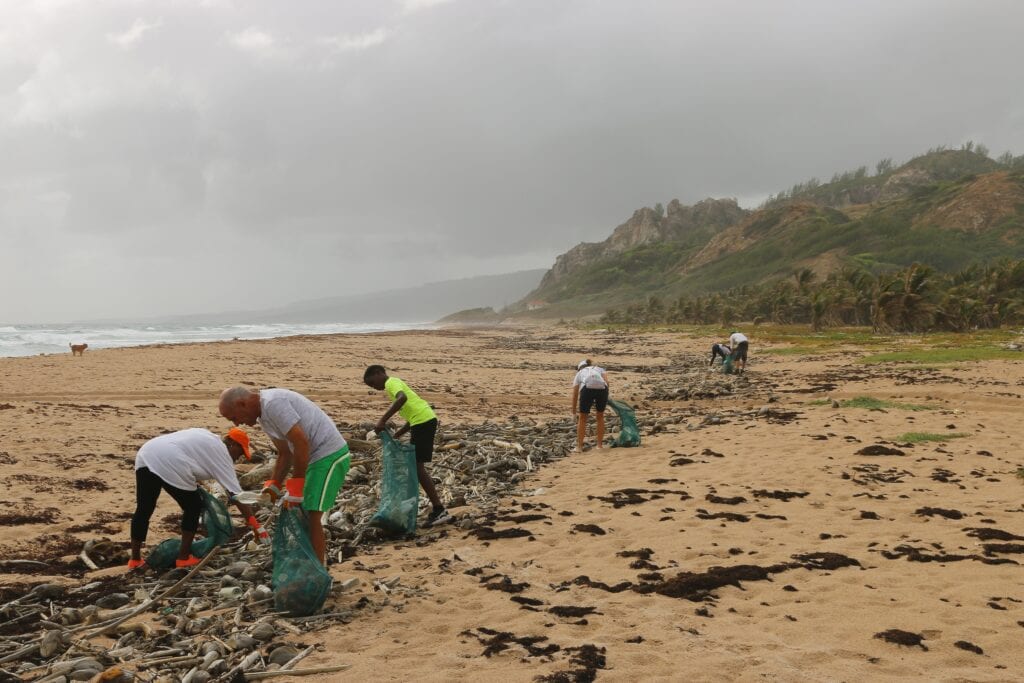There are lots of reasons that you might consider a volunteer abroad opportunity.
Perhaps you have visited a country, fallen in love with the community, and you really want to give something back to the wonderful people that you met there.
Maybe you want to learn more about the world and really immerse yourself in a local culture, but you also want to feel like you are doing something positive and worthwhile at the same time.
Fortunately, there are many volunteer abroad opportunities available today, with some communities leveraging this natural human instinct to help in order to set up projects that genuinely benefit their communities.
But sadly, there are also companies out there who have created volunteer opportunities purely as a way of making money. And, far from helping the communities that they claim to support, they might actually hurt them.
If you want to volunteer abroad, it is down to you to make sure that the programs you get involved with are ethical and have a positive impact.
In this article, we are going to go through why you need to look at volunteer abroad opportunities with a critical eye, and how to tell the genuinely beneficial opportunities from the scams.
How Can Volunteering Hurt?
You can be forgiven for wondering how volunteer programs might actually hurt the people that they claim to help. Surely, no matter what you are doing, you are giving something of value to the community that you are helping?
Sadly, the answer is no. There are companies out there that exploit the good will of people to make money. They create volunteer opportunities to encourage foreigners to pay to participate in them, and then spend money while there, often at places that they recommend.
This can have a significant negative impact on the local community, as rather than working to fix problems, these companies have a vested interest in maintaining the situation of “need” that keeps volunteer tourists coming and paying.
Orphanages
One of the worst examples of this is orphanages. Many people would happily volunteer time and money to help children around the world that need it. But in response to this, orphanages can stop trying to actively place their charges with family members or within the community because they want to keep them in the orphanage to fuel the volunteer tourist desire.
As an example, since 2005 the number of orphanages in Cambodia has increased by 75% to meet the demands of tourists. (Yes, Angelina Jolie adopted a child from Cambodia in 2002 and this is probably not a coincidence.)
But reports suggest that there are not enough orphans to fill these orphanages, so sometimes children with families are “hired out” to orphanages in order to “fill them up” and give tourists more children to interact with.
This is not only exploitative. Spending even a small time in an orphanage can have long term negative impacts. Children who have spent time in an orphanage are 10 times more likely to become involved in the sex industry.

Animal Sanctuaries
Animal sanctuaries can be negative volunteer abroad opportunities for similar reasons. These sanctuaries, rather than actively working to return wild animals to their natural habitats where they belong, keep them in captivity. This usually allows them to maintain a visitor centre and create lucrative volunteer opportunities.
If you volunteer in an ethical animal sanctuary, you should expect to have minimal contact with the animals themselves. This is because the sanctuaries would not be trying to “domesticate” animals, and therefore they should only be engaged with by experts.
In good sanctuaries, volunteers will usually be used to do things behind the scenes, and to help maintain the habitats in which the animals are temporarily living.

Poorly Planned Opportunities
As well as these explicitly exploitative volunteer abroad programs, poorly planned programs can also have a significant negative impact on the local community.
As just a few examples:
- Opportunities that give unskilled jobs to volunteers can take job opportunities away from locals and undermine their ability to earn a living.
- Volunteers can be given responsibilities for which they are not qualified, undermining the success of projects and even putting people at risk. This is particularly worrying in the medical sphere when trainee doctors and nurses are asked to perform tasks that they are not yet fully qualified for.
- A steady stream of volunteers doing certain tasks for free can undermine incentives to upskill and enable local communities to do for themselves.
On top of this, volunteer abroad opportunities that are more about meeting the needs of the volunteers to feel good about themselves than meeting the needs of the local community can perpetuate the “white savior” complex.
This is the idea that predominantly white people from rich countries can “save” brown and black people from poorer countries and are in some way “better” than the people that they are helping.
The reality is that the people being helped often lack resources and opportunities rather than lacking ambition, imagination, and the drive to help themselves.
Volunteer opportunities that are more about fulfilling the needs of the volunteers than the communities are called “voluntourism”, and along with explicitly exploitative projects, should be avoided.
How To Conscious Check Volunteer Abroad Opportunities
So, how are you expected to be able to tell the difference between good volunteer abroad opportunities that can have a genuinely positive impact, and negative opportunities?
There are a few questions that you can ask about the volunteer abroad opportunity that should help you separate the good from the bad.
Where does your money go?
While you are already volunteering your time, most volunteer abroad opportunities will also require you to pay a volunteer fee.
This money should go towards providing support for you on the ground while you are volunteering. This will include things such as food, housing, in-country transport, and providing a translator.
You can also expect a portion of your fee to go towards administration costs, and perhaps some project costs.
The point is that this should be information that the company shares with you freely.
The numbers should also make sense. You shouldn’t be paying $3,000 for a two week stay in Cambodia to volunteer at an orphanage. This far outstrips the cost of administering and supporting your volunteer work, and suggests that the company is making a significant profit off your good will.
What will you be doing?
When you volunteer, the project that you will work with should be able to give you a clear idea of what you will be doing while there, and how it will benefit the community.
If information is vague, this is usually a warning sign that the project has not been carefully planned to benefit the community and is more of a tourist opportunity.
You should also look at the tasks that you will be asked to do and decide whether you are qualified to do them. You shouldn’t be doing anything in another country that you wouldn’t be able to do in your home country. This applies to everything from providing medical treatment to building a house. Would you feel safe living in a house that you built?
Also, are you taking a job that a local would be able to do? Jobs that require unskilled labor could generally be filled by locals. If it is an unskilled job, does the project have a good justification for this arrangement?

Is the program sustainable?
Ideally, programs should be sustainable, working to empower to local community to do for themselves so that they no longer need to rely on international volunteers for certain tasks.
This takes time, and it would be unreasonable to expect that you are the last volunteer that the project will ever need, but there should be a clear path to sustainability.
If locals are involved in the project, and it is not simply run by an international company that parachutes in, that is a good sign that it has been designed to meet community need.
It is also a good sign when opportunities involve skills transfer to locals. Maybe you are a networking expert working on a project to bring Wi-Fi to a local community. Rather than just doing the work yourself, the best projects will see you showing locals how to expand and manage the network themselves.
Does the activity match the timescale?
Most volunteer abroad opportunities will last at least one month. It is difficult to have an impact in less time than that. Also, if the company offers a series of two-week opportunities, either those two weeks are quickly eaten up by training, or volunteers aren’t receiving proper orientation and training to do their jobs properly.
If you are looking for a shorter opportunity, you need to consider roles that will really allow you to make a difference in such a short amount of time. One good example is beach clean-up work. It requires minimal training and even your two weeks will make a difference.

Do they have a photography policy?
No matter where you are in the world, many people do not want the challenges of their lives plastered all over the internet. For this reason, good companies will generally have policies in place designed to guide you in regards to what kind of photography is appropriate and how you can share some of your memories ethically.
For example, you would not want to share a photo of yourself with a child in a way that reveals their HIV status to the world.
It is easy to accidentally share a photo in a way that can have a negative impact. You probably haven’t thought about all the long-term consequences of sharing a photo of yourself with someone that you have become close to during the course of your volunteering and care about.
But the point is that the company that manages the volunteer opportunity should have thought about these things and have tools in place to help and guide you.
Seeing how they themselves use photos on their website and social media can give you a good indication of how ethically they are approaching the production and use of this kind of content.
Why Do You Want To Volunteer?
If you can answer the above questions about a volunteer abroad opportunity, you have a good chance to be able to determine whether a volunteer opportunity is both ethical and worthwhile.
But as well as conscious checking the opportunity, it is a good idea to spend a little bit of time in self-reflection and make sure that you are volunteering for the right reasons as well.
Everyone’s reasons are different and seeking experience isn’t necessarily a worse reason than wanting to help a specific community.
But do take the time to self-reflect and ensure that you are happy with your motivations.












